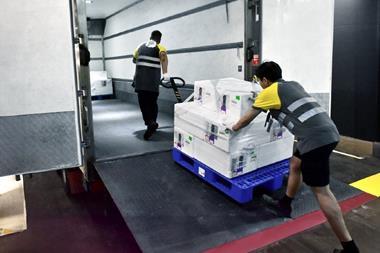TIACA is continuing to push for regulators from various countries to implement aligned advanced data requirements to avoid a patchwork of regimes.
The association, which represents members from across the supply chain, has been working with Europe’s DG Mobility and Transport on its advanced-data requirement, which goes into effect in May next year, although it will not be implemented at that time.
TIACA secretary general Doug Brittin said it could be a while before European countries are ready to accept filings for the requirement.
In the meantime, TIACA is continuing to work with Brussels to ensure a smooth implementation.
It is also working with other countries, the World Customs Organization (WCO) and the International Civil Aviation Organization (ICAO) to ensure that there is alignment in the so called 7+1 advanced data sets to be implemented in other regions.
“We are one of the key members of ICAO and WCO working group that aims to establish global [advanced data] standards,” said Brittin.
“We made some good progress over the last half year with that group with a standard format of what data elements need to be filed, at least with 7+1, which has now become part of the WCO framework, so we are pleased to see that as there was a lot of opportunity to go all over the place.
“We'd like to see all the advanced data requirements aligned because you've got the US, Canada, China, Japan and South Africa all looking at these potential programmes in the future.
“It's extremely important that as new countries look at putting programmes in place, they follow the same basic premise.
“With the US and Canada we have a close working relationships with US Customs and Border Protection, the Transportation Security Administration and the Canada Border Services Agency to say if you do this, this is going to have this impact on the carriers and this impact on the forwarders.
“So let’s figure out how to do that before we go down the path of writing regulations.”
Brittin added that it was an advantage for TIACA to have members from across the supply chain as it was able to balance the full range of effects of advanced data regulations and not just look at issues from one perspective.
Governments began to look at implementing new advanced data requirements following the 2010 Yemen cartridge bomb incident, when terrorists hid bombs in two computer printers sent by airfreight on FedEx and UPS flights from Yemen to the US.
The requirement for advanced data to be submitted prior top loading provides an additional risk-based layer of security.










